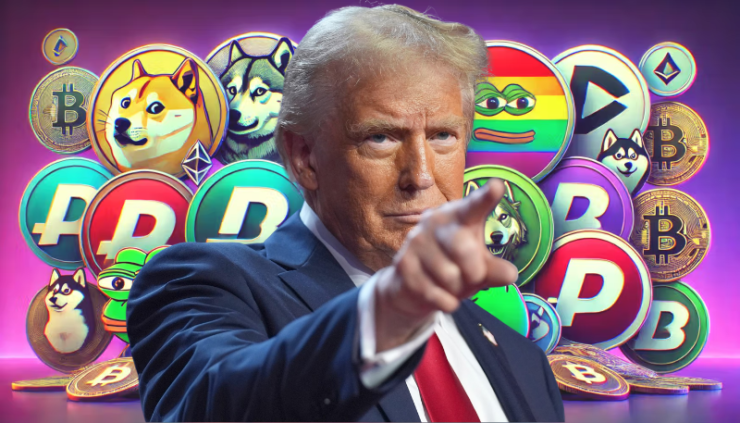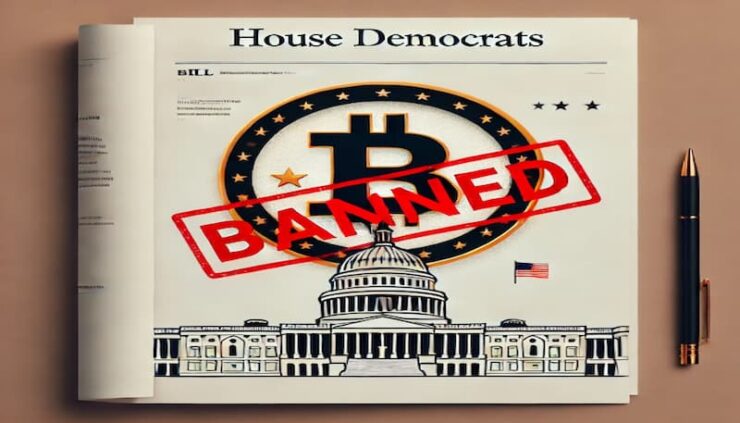A group of House Democrats has introduced a bill aimed at banning presidential-themed memecoins, arguing that these digital assets pose risks of misinformation, market manipulation, and political exploitation.
The proposed legislation, revealed on Feb. 27, comes as political memecoins such as those themed around Donald Trump and Joe Biden have gained traction in the crypto market, sparking debates over their impact on elections and financial integrity.
Lawmakers Take Aim at Political Memecoins
According to the bill’s sponsors, memecoins featuring political figures could distort public perception and be used to spread misleading narratives about candidates. The bill proposes a ban on the creation, sale, and promotion of memecoins featuring U.S. presidential candidates.
A Democratic representative leading the bill stated:
“These politically themed tokens open the door to misinformation, market manipulation, and unethical financial schemes that could undermine trust in both elections and digital assets.”
Surging Popularity of Presidential Memecoins
The move follows a surge in presidential-themed memecoins, including those inspired by Donald Trump’s re-election campaign and satirical versions featuring Joe Biden and other political figures. Some of these tokens have reached multi-million-dollar valuations, attracting retail investors and speculators.

However, critics argue that these tokens are being weaponized for financial and political gain, with some being pump-and-dump schemes designed to exploit retail investors.
Blockchain security firms have also reported fraudulent presidential-themed tokens, where developers vanish after raising funds, leaving investors with worthless assets.
Regulatory Scrutiny on Political Crypto Projects
The bill aligns with growing regulatory scrutiny of politically driven crypto projects. Lawmakers have expressed concerns that such tokens could be used for illicit campaign fundraising, influence operations, and financial fraud.
Last month, the SEC and CFTC launched separate investigations into certain memecoin projects suspected of misleading investors about their affiliation with political campaigns.
Crypto Community Reacts: A Step Too Far?
The proposed ban has sparked mixed reactions within the crypto industry.
Some policy experts argue that banning political memecoins outright is an overreach and sets a dangerous precedent for limiting financial expression in digital markets.
Meanwhile, crypto developers worry that the bill could lead to broader restrictions on token creation, affecting legitimate projects that use political satire or activism as a form of digital expression.
“While regulatory oversight is necessary, an outright ban risks suppressing innovation and free speech in crypto,” said a prominent Web3 developer on X.
What’s Next?
If passed, the bill could change the landscape for politically themed cryptocurrencies, forcing exchanges and blockchain platforms to delist presidential memecoins.
However, opponents are expected to challenge the legislation, arguing that political memecoins like political satire are a form of free speech.
The debate over crypto regulation and political expression is far from over, and this bill may set the stage for broader discussions on how digital assets intersect with elections and democracy.
Ripple Labs has formed a strategic partnership with BDACS, a South Korean digital asset custody provider, to enhance institutional custody solutions for XRP and Ripple USD (RLUSD). This collaboration marks a significant step toward strengthening the country’s institutional crypto infrastructure amid increasing regulatory scrutiny and demand for secure digital asset storage.





